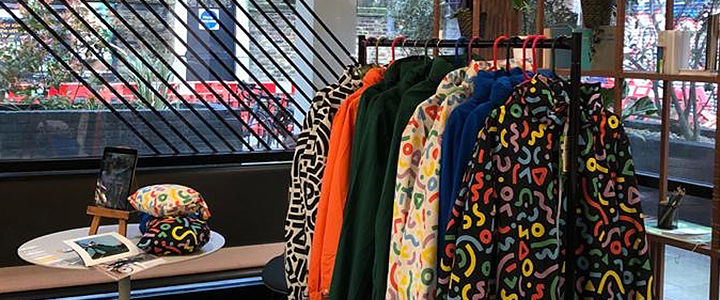Acquiring IP: Why is NEXT buying FatFace?
- Rosie Burbidge

- Oct 27, 2023
- 3 min read
Updated: Nov 8, 2023

The fashion retail sector is going through a period of change and consolidation, with some well-known brands changing hands.
The latest example is the acquisition by NEXT of 97% of FatFace for £115.2 million. This follows NEXT’s acquisition of majority stakes in businesses as diverse as Cath Kidston, Joules and Made.com as well as investment in JoJo Maman Bébé and Reiss.
As others have noted, NEXT is not the only company expanding in this way. Frasers Group recently bought five fashion brands from JD Sports as well as increasing its stakes in Asos and Boohoo, while Marks & Spencer acquired Jaeger in 2021.
E-commerce and sustainability
There are likely several factors driving this trend, and the FatFace acquisition highlights two key reasons.
First, the growing importance of e-commerce as consumers increasingly browse and buy clothes and accessories online. NEXT noted that digital channels account for 40% of FatFace sales, a figure that will surely increase.
One of the stated aims of the deal is to migrate FatFace’s online operations onto NEXT’s Total Platform, which provides a range of online services to third-party brands.
Next’s website currently offers products from around 50 brands, ranging from adidas to White Stuff. There is clearly value in offering consumers the opportunity to buy a wide range of their favourite brands in one place, together with associated services such as returns.
The other factor is the importance of sustainability. In its announcement, NEXT highlighted that FatFace “has sustainability at its core” based on the three pillars of “product, planet and community”. FatFace was recently awarded B Corp status.
Respected certifications such as B Corp enable brands to demonstrate their sustainability credentials to eco conscious consumers. B Lab IP LLC has 24 marks around the world, primarily for the famous B logo. Judging by their trade mark filings, the B Corp certification is primarily used in the USA, UK, Colombia, Singapore and Korea.
How to manage a global portfolio
When companies acquire well-known brands, they are making an investment in the goodwill and loyalty that a brand has with its customers, so it is critical to retain those assets.
In practice, that means thorough due diligence at the outset to ensure that IP rights for the name, logos, domain names, key products/services and even aspects such as design of stores are protected in key markets and properly maintained as well as ongoing management to keep the IP assets secure.
Where a company develops or acquires a diverse range of brands, the amount of work in managing the portfolio may be considerable and it should be properly resourced. Monitoring the market for infringements and counterfeits is also critical if the brand value is to be maintained.
An important part of that work is ensuring that permissions to use third-party brands including certifications such as B Corp are in order, as these can be very important for consumers.
As customer experience continues to evolve following the pandemic, with e-commerce likely to grow further and customers making tough choices due to the cost-of-living crisis, we may well see further consolidation in the fashion retail sector. If you require more detailed advice on the types of IP issues to address in due diligence and following deal closure, please get in touch.
To find out more about the issues raised in this blog contact Rosie Burbidge, Intellectual Property Partner at Gunnercooke LLP in London - rosie.burbidge@gunnercooke.com


